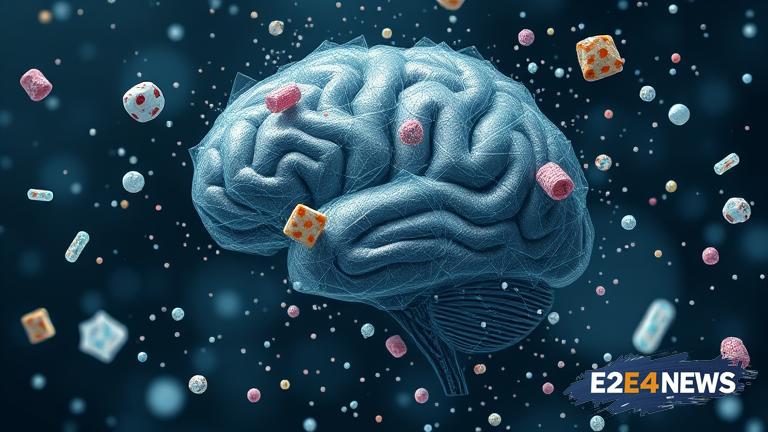In a shocking discovery, scientists have found microplastics in human brains, a phenomenon that has left the medical community stunned and concerned about the potential health implications. The study, which analyzed brain tissue samples, detected the presence of microplastic particles in various regions of the brain, including the cerebral cortex, hippocampus, and cerebellum. While the effects of microplastics on human health are still unknown, the findings have sparked widespread concern and calls for further research. Microplastics, which are tiny plastic particles less than 5 millimeters in size, have been found in numerous environments, including oceans, rivers, and soil. However, the discovery of microplastics in human brains is a new and alarming development. The study’s authors suggest that microplastics may be entering the brain through the bloodstream or via the nasal passages, where they can be inhaled. The presence of microplastics in the brain has raised concerns about potential neurotoxic effects, including inflammation, oxidative stress, and damage to brain cells. Furthermore, the study’s findings have implications for the development of neurodegenerative diseases, such as Alzheimer’s and Parkinson’s. The researchers emphasize that more studies are needed to fully understand the effects of microplastics on human health and to develop strategies for reducing exposure. The discovery of microplastics in human brains has also highlighted the need for improved waste management and recycling practices, as well as the development of biodegradable alternatives to traditional plastics. As the world grapples with the challenges of plastic pollution, the findings of this study serve as a stark reminder of the urgent need for action. The study’s authors note that the presence of microplastics in human brains is likely a widespread phenomenon, affecting people all over the world. The research team is now calling for further studies to investigate the effects of microplastics on human health, including the potential risks to brain development, cognitive function, and mental health. In addition, the study’s findings have implications for the development of new treatments and therapies for neurodegenerative diseases. The discovery of microplastics in human brains has also sparked concerns about the potential impacts on fetal development and the health of future generations. As the scientific community continues to investigate the effects of microplastics on human health, it is clear that this is a public health issue that requires immediate attention and action. The study’s authors emphasize that reducing exposure to microplastics is crucial, and individuals can take steps to minimize their exposure by using reusable bags, water bottles, and straws, and avoiding products with microbeads. Moreover, governments and industries must work together to develop and implement effective waste management and recycling practices, as well as to promote the use of biodegradable materials. The discovery of microplastics in human brains is a wake-up call for the world to take action against plastic pollution and to protect human health. The study’s findings have significant implications for the development of environmental policies and regulations, as well as for the promotion of sustainable practices and lifestyles. Ultimately, the discovery of microplastics in human brains serves as a reminder of the interconnectedness of human health and the environment, and the need for a comprehensive approach to addressing the challenges of plastic pollution.





